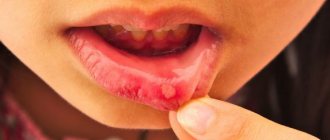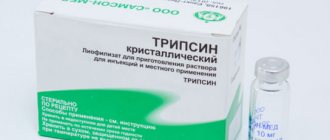Due to stress, physical activity or various types of illnesses, our body may produce insufficient amounts of saliva. As a rule, after a couple of hours or days, the dryness goes away and everything returns to its place, but what to do if the problem does not rush to resolve itself, but only gets worse? A symptom such as dry mouth is not such a harmless phenomenon. Saliva helps to chew food normally, which is very important for the functioning of the stomach, and also protects the dentition from bacteria and germs to avoid caries and other oral diseases.
Causes
The main cause of dry mouth is insufficient saliva production. The cause of poor functioning of the salivary glands, in turn, is the following factors:
- Stress and nervousness
- Chemotherapy or medication
- Bad habits (smoking, taking drugs)
- Diseases associated with impaired immune system (diabetes mellitus, Parkinson's and Sjögren's diseases)
- Age-related changes in the body
Causes and types of food poisoning
In general, there are 2 main causes of food poisoning:
- The body's reaction to foods that differ from the daily diet2.
- pathogenic flora (bacteria, fungi), viruses and toxins that enter the body mainly with contaminated food.
Every corner of the world has its own infectious agents, and they are ready to instantly attack the human gastrointestinal tract, if you just gape.
During the hot season, the chance of getting poisoned increases many times over, because food is stored less and bacteria multiply much faster. Food poisoning is especially common when traveling, so there is a separate concept - “traveler's diarrhea.” Going south, to Asia, the Middle East, Africa, South America or hot islands, we endure a sharp change in climate zone, try unusual national cuisine and drink local water. All this, combined with bacteria and viruses new to our body, can cause food poisoning.
In the US, it has been estimated that out of 1,000 people who become ill after traveling, 1/3 always suffer from diarrhea and food poisoning. E. coli is becoming the most common cause of severe diarrhea abroad1.
A child's body is even more vulnerable. For a fragile body, the cause of poisoning can be anything, especially when traveling: unwashed hands, playing in the sand, unusual sweets or fruits. An accidental sip of water from a pool or sea can also affect a child's intestinal health.
Main symptoms
- Taste bud disorder
- Thirst
- Viscosity in the mouth
- It becomes difficult and difficult to chew food and talk
- Hardening of the tongue
- Dental diseases (caries and gum inflammation, stomatitis)
- Bad breath
In addition to the main symptoms, patients may experience weakness, nausea, and dizziness. In this case, it is necessary to undergo a complete examination, since the presence of these factors may indicate serious problems in the body that need to be addressed immediately.
Signs of food poisoning and possible complications
Despite the fact that food poisoning occurs due to various reasons, its manifestations at first are always the same, and the symptoms are similar.
The main feature of any poisoning is the speed with which it occurs. Everything happens very rapidly and quickly - within a few hours or in the next 24 hours the body signals a problem1.
The human body is a self-regulating system and therefore tries to get rid of pathogens in any way. This may include general malaise, diarrhea and abdominal pain3:
- Abdominal pain varies in nature, but is often sharp and quite severe. The intestines react to most toxins and bacteria with a spasm.
- Intoxication of the body - headache, weakness, muscle pain and joint aches.
- Diarrhea is also a striking symptom of food poisoning, manifesting itself in almost every case.
In case of severe poisoning, other symptoms may be added - nausea, vomiting and fever3:
- Nausea is one of the clearest examples of how the body tries to resist a food infection and eliminate bacteria. Nausea may be accompanied by belching and a feeling of heaviness in the stomach.
- Vomiting is another of the body’s defense mechanisms against infectious agents. In case of severe and progressive poisoning, vomiting must be controlled, otherwise severe dehydration may occur.
- Dehydration syndrome. Conditions for such a symptom would be active vomiting or diarrhea. The human body loses a huge amount of fluid in a short period of time, which can be expressed by severe thirst and dizziness, up to loss of consciousness. Dehydration is especially dangerous in children, who, with severe poisoning, instantly lose all water reserves in the body.
- Increased body temperature. The body reacts to any attack in a similar way. Food poisoning is no exception, the body tries to fight, which is manifested by an increase in temperature from 37.5º C to 40.0º C - it all depends on the specific type of virus or bacteria.
Dry mouth - what to do?
To get rid of dry mouth syndrome, you first need to eliminate the cause of the problem: quit smoking, try to be less nervous, change the dose of medications used, or change the drug altogether. In some cases a dentist in Minsk or another doctor may recommend a special drug to improve the functioning of the salivary glands, and before going to bed it is recommended to use a moisturizing mouth rinse.
If you do not deal with dry mouth, this will lead to the active development of caries and inflammation of the gums and mucous membranes, as a result of which you will need urgent dental treatment under anesthesia in order not to lose the tooth at all. You can undergo the treatment procedure without stress and discomfort at the Family Dentistry Center. Thanks to modern technologies, as well as drug sedation, eliminating any oral problem without pain and fear is not only easy, but also inexpensive. High-quality services, high-level specialists, and affordable prices - we value our patients.
Treatment of food poisoning
First of all, to restore the body, you need dietary nutrition, which will help restore normal functioning of the gastrointestinal tract (GIT).
When resuming nutrition after poisoning, general recommendations must be followed3:
- You need to eat often and in small portions.
- Fried, stewed, spicy, salty and fatty foods are strictly prohibited.
- Alcohol and carbonated sweet drinks should be forgotten during treatment and further recovery.
- It is important to maintain the serving temperature of the food - it should remain neutral - neither cold nor hot.
- The predominant cooking method is boiling and steaming.
- Dishes should be light, mostly lean and familiar to the body.
A home or traveler's first aid kit should always include anti-poisoning medications.
The most popular products3,4:
- Adsorbent preparations or sorbents. No first aid kit should be without such a product. The task of the sorbent is to absorb the toxin and its further removal from the body.
- Drugs to improve digestion. They help the body fully absorb food and will be especially relevant after defeating poisoning.
- Antispasmodics or painkillers. Spasms and pain in the stomach or intestines can also be the body’s reaction to an external “attack”. The task of such medications is to relax the internal muscles and relieve spasms, as a result of which the pain goes away.
When faced with food poisoning, it is first of all important to cope with the acute period of the problem, but it is equally important to think about the period of rehabilitation of the digestive system, because the inflammatory process disrupts its normal functioning. One of the consequences of such a disorder may be a lack of digestive enzymes, which are responsible for the breakdown and absorption of food in the body. As a result, the body experiences a deficiency of nutrients, and a person, even after recovery, may still experience unpleasant symptoms for some time - discomfort in the abdomen, heaviness after eating, periodic bowel movements, etc.
Pancreatin enzyme preparations may be useful to maintain digestion after poisoning5. They are called enzymatic because they contain digestive enzymes identical to those produced by the body and are included in the standard treatment of foodborne infections6.
Digestive enzymes are a special type of compound designed to break down carbohydrates, proteins and fats for subsequent absorption in the body.
What to do if you feel faint: first aid
All first aid techniques during a pre-fainting state are aimed at preventing the onset of full-fledged fainting. Let's look at all the necessary steps in detail.
- The first is to provide oxygen access to the room, and, if possible, take a comfortable position. Remove all objects that put pressure on the chest and neck (scarf, tight collar, tie). To better saturate the blood with oxygen, it is necessary to take rhythmic inhalations and exhalations. If the breathing process is difficult, ammonia will help. A sweet, warm drink in the form of tea also helps relieve an attack. If you suspect evaporation of harmful substances in the room or a gas leak, you should quickly leave the building and go outside.
- After the crisis has passed, the body must be provided with the required amount of fluid, which involves consuming at least 2.5 liters of water per day. Taking drugs such as Asparkam and Panangin will normalize the balance of electrolytes in the blood and ensure normal blood supply to all organs. And, of course, it is necessary to establish the cause of the pathology.
- If you have chronic fatigue syndrome, you must take the necessary vitamins and minerals and ensure all conditions for normal work and rest. In case of hypotension or anemia, the cause of this condition should be immediately determined. Since some pathologies require immediate medical attention.
Everything we talked about in this article needs to be known and remembered by every person. Because presyncope attacks develop suddenly, which can pose a serious threat to life. After all, at this moment a person can cross the roadway or drive a car. The most important thing when providing first aid to yourself or your loved ones is to prevent full-blown fainting from developing.
Primary appointment with a neurologist: 1850 RUR.
Sign up Online 5% discount when registering from the site
Signs and symptoms of presyncope: dizziness, nausea
Symptoms of presyncope are characterized by sudden development, which is usually provoked by certain factors. A stuffy room, tight clothing, stressful situations, excessive physical activity, eating - all this can contribute to the onset of an attack.
The most characteristic symptom of presyncope is dizziness, which may be accompanied by nausea. This indicates disturbances in the functioning of the human autonomic system.
There is a certain risk group of people for whom the presyncope may be permanent. These are people suffering from hypotension (low blood pressure), chronic anemia (low hemoglobin level in the blood, less than 100 units), bradycardia (low heart rate, less than 40 beats).
Any of the described signs is a serious reason to see a doctor. But, since an attack of pre-fainting can occur at any time and in any place, it is necessary to have at least a general understanding of how to provide first aid to the victim or yourself at home.
Causes of presyncope (why it occurs)
Let's first figure out what are the causes of presyncope. As mentioned above, a fainting state occurs due to the fact that the brain stops receiving the required amount of blood. But there are many other factors that can lead to this condition. The leading position among them is in intoxication of the body, which is caused by cancer and infectious diseases.
These include the following pathologies and diseases:
- intestinal infections of various etiologies;
- parasitic infection;
- thyroid diseases;
- viral hepatitis in acute or chronic form;
- hypotension;
- poisoning with chemical and toxic substances;
- various diseases of the cardiovascular system: arrhythmia, ischemic disease, heart failure.
The development of presyncope is promoted by dehydration, and pregnant women are often exposed to it. In these cases, an attack occurs due to insufficient blood volume necessary for normal functioning of the body.
There are other causes of fainting. These include: alcohol intoxication, tobacco addiction, congestion in the gallbladder, etc. The level of glucose in the blood is also one of the causes of pre-fainting. Since its increase or decrease can cause hypoglycemic fainting in a person. In this case, a complete examination of the pancreas is necessary, and consultation with a doctor regarding the necessary dietary therapy and level of physical activity. If these measures are taken on time, the development of such a serious disease as diabetes can be prevented.
Signs of pneumonia in an adult
When the disease appears, a person’s body temperature rises, which can reach 38°, there is general weakness throughout the body, a headache, the patient wants to lie down and relax. After a few days, a strong paroxysmal cough appears and sputum appears.
Pain in the chest, especially at the site of inflammation, as well as the appearance of shortness of breath indicate the seriousness of the situation and clearly indicate pneumonia.
General signs are listed here, but the nature and timing of their manifestation may differ depending on the type of pneumonia. With viral pneumonia, the first symptoms appear quickly and the patient feels a sharp deterioration in health. From the very beginning of the disease, muscle pain, high body temperature, severe headache, and a painful dry cough are observed.
Bacterial pneumonia, on the contrary, develops gradually. The disease begins only 2 weeks after the first symptoms appear. After this, there is a sharp relief, an improvement in the general condition of the patient, then the temperature rises sharply again, a headache occurs, the cough intensifies, and purulent sputum appears.
One of the serious types of the disease is atypical bilateral pneumonia, which extensively affects the lung tissue and develops respiratory failure. In terms of its symptoms, bilateral pneumonia resembles a cold viral infection, and the characteristic wheezing is not yet heard in the lungs. Many begin to treat themselves, which aggravates the condition.
At first, the sick person thinks that his condition has improved, the symptoms of the pathology begin to go away. But then the cough worsens and the second wave of the disease begins.
Symptoms may vary slightly in older people. First of all, a dry cough and shortness of breath appear during minor physical exertion on the body or even at rest. Often the disease occurs without fever in older people.








